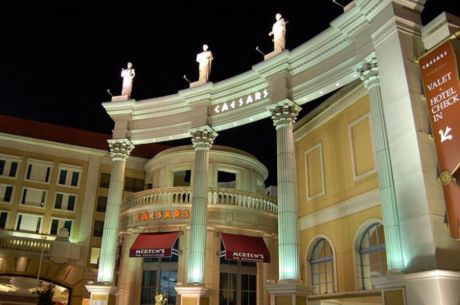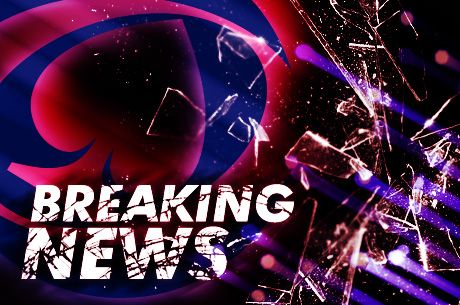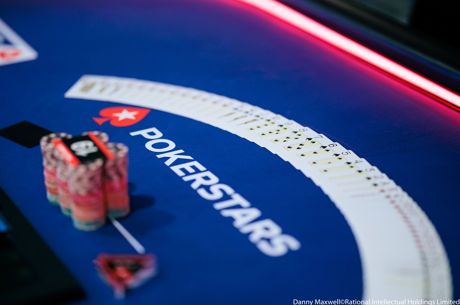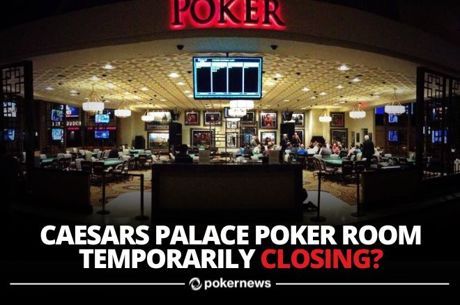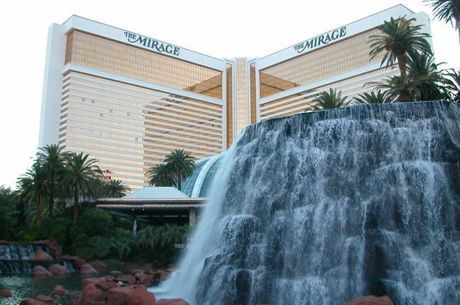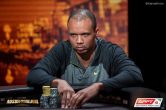Inside Gaming: Speculation Over MGM��s Mirage Sale Intensifies; Native American Gaming Revenue Up
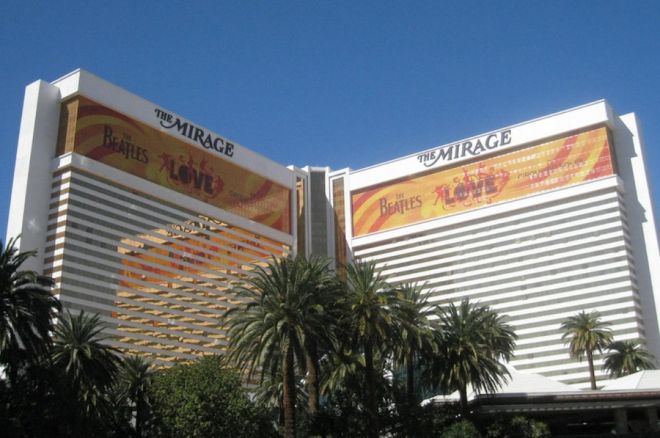
This week��s installment of Inside Gaming focuses on the possible sale of The Mirage by MGM Resorts, another yearly increase in gaming revnue for Native American casinos, the Seminoles�� agreement with Florida to offer blackjack and other card games expiring, and another Caesars court request being denied.
Speculation Intensifies Regarding MGM Sale of The Mirage
After years of speculation regarding the possibility, reports this week indicate MGM Resorts International is now considering in earnest selling the The Mirage, with the Starwood Capital Group being discussed by industry observers as the prospective buyer.
Vital Vegas first reported on the rumor this week, suggesting that even though neither side has made any public comment on the matter, the sale will likely happen ��within the next three weeks�� with the price tag likely exceeding $1 billion.
��Once the sale of The Mirage is complete,�� says Vital Vegas, ��the casino will be managed by Paragon Gaming, the company which took over operations of Westgate Las Vegas after the sale and closure of the Riviera.��
Over at the Las Vegas Review Journal, industry analysts note how the MGM��s current focus on its Park project being constructed in between the New York New York and Monte Carlo �� along with other plans �� further support the possibility that The Mirage sale is imminent.
Built by Steve Wynn and first opened in 1989, The Mirage was best known during the 1990s as the site of the famous Sigfried & Roy show. Recently it has been venue for the Cirque du Soleil Beatles-themed production LOVE, performed there since 2006. MGM Resorts acquired The Mirage in 2000.
For more on the story, visit Vital Vegas.
Indian Gaming Revenue Up in 2014, Fifth Straight Year of Growth
Late last week the National Indian Gaming Commission issued a report on the performance of Native American-owned casinos on reservations and tribal lands during 2014, with the data showing $28.5 billion in gross gaming revenues for the year, an increase of 1.5% from the $28 billion of 2013. That represents a fifth-straight year of growth for Native American gaming.
NIGC Chairman Jonodev O. Chaudhuri was enthusiastic when commenting on the figures, highlighting that regulation has been central to the industry having been able to sustain itself while continuing to grow.
��Overall, the Indian gaming industry remains stable. Stability comes from solid operations, strong tribal management, and effective regulation by the Indian gaming��s regulatory community, which includes the NIGC and more than 5,400 tribal regulators,�� Chaudhuri said.
��Sound regulation is an essential pillar of support for the critical avenue of self-sufficiency and self-determination that Indian gaming has proven for so many tribal nations. Sound regulation preserves public confidence, protects tribal assets, and promotes a safe and fair environment for all people who interact with the industry.��?
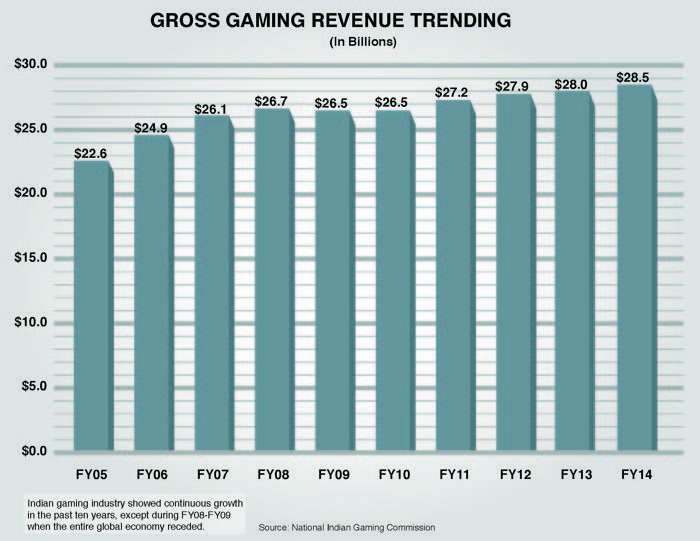
The data breaks down the figures in various ways, including showing the different performance of seven different NIGC regions in the country. Of those the Oklahoma City Region (including 65 gaming operations in Texas and western Oklahoma) showed the biggest gain year-over-year, increasing 7.5% in revenue, while the Sacremento Region (including 68 gaming operations in California and Nevada) was next best with a 4.4% increase in revenue over 2013. Meanwhile both the St. Paul and Phoenix Regions showed slight decreases, down 1.5% and 1.1%, respectively.
For a deeper look into the 2014 data, including numerous charts and graphics, head over to the National Indian Gaming Commission.
Seminoles�� Compact with Florida to Offer Blackjack and Other Games Expiring Today
Speaking of Native American gaming, a five-year compact between the Seminole Tribe and the state of Florida allowing blackjack, baccarat, Pai Gow, and other types of card games to be offered in the tribe��s casinos expires at midnight tonight. A 90-day grace period means the games won��t be shut down just yet, although if the state��s stance doesn��t change it could mean the end of such games might well come soon.
In anticipation of the July 31, 2015 expiration, Ken Lawson, secretary of the Department of Business and Professional Regulation, wrote a letter to Seminole tribe reminding them of the requirement to shut down the tables within the 90-day period unless there is a renewal of the compact by the Florida legislature during the interim. CDC Gaming reports that such an extension was considered by lawmakers during the spring, but did not pass. A meeting between state and tribal officials took place two weeks ago without any agreement coming from the talks.
��The next steps are likely a formal mediation session followed then [by] the two sides squaring off in federal court,�� explains CDC Gaming. ��The tribe, however, said it would continue to make payments to the state for the card games as a ��gesture of good faith.����
The deal reached in 2010 between the Seminoles and Florida gave the tribe exclusive rights to spread blackjack and other card games in Immokalee, Tampa, and its three Broward County casinos including the Seminole Hard Rock Hotel & Casinos in Tampa and Hollywood.
Read more about the compact and current efforts to extend it at CDC Gaming.
Judge Denies Caesars�� Request for Fast Appeal to Stop Lawsuits
Finally, a brief follow-up to report on last week��s headline story regarding the ruling by U.S. Bankruptcy Judge Benjamin Goldgar that creditors be allowed to proceed with lawsuits against Caesars Entertainment Corp. in the wake of the company��s restructuring and the declaration of bankruptcy by its largest division, Caesars Entertainment Operating Co..
Caesars had hoped to forestall the lawsuits that collectively seek approximately $11 billion in order to proceed with its bankruptcy filing, but Judge Goldgar saw otherwise, setting up a scenario in which the parent company may well have to declare bankruptcy itself. Shares of CZR dramatically fell amid heavy trading on NASDAQ in response to the news, dropping from $7.69 to $4.76 per share on July 22. This morning CZR opened at $5.17 per share.
As expected, CEOC swiftly requested a ��fast appeal�� of the ruling designed to try to overturn it quickly by appealing directly to federal circuit court rather than going through the district court. The request was denied, however, which means Caesars could be less than a month away from facing having to be liable for CEOC��s debt.
As Bloomberg Business explains, the ��decision makes it more difficult for the company to halt the bondholder litigation before a Manhattan federal judge can consider imposing billions of dollars in liability on the parent [company].��
Find out more about the situation for Caesars over at Bloomberg Business.
Photo: ��The Mirage, Vegas,�� Dan Perry. Creative Commons Attribution 2.0 Generic.
Want to stay atop all the latest in the poker world? If so, make sure to get PokerNews updates on your social media outlets. Follow us on Twitter and find us on both Facebook and Google+!

